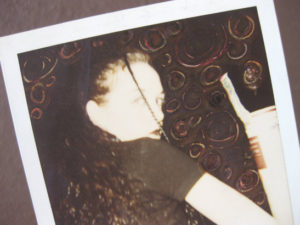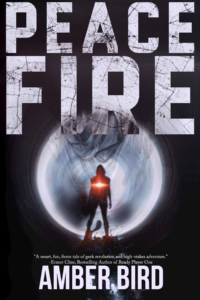(I no longer enjoy, nor have time for, arguing with people online. Especially given what a nasty place the internet has become for any conversation where you don’t agree. So, yeah, I’m talking around a thing.)
***
Before there was an internet, if you wanted a list of all giant robot films, you wrote it yourself. You didn’t have any guarantee that anyone else would have done that, but you knew you wanted to know and, if you were lucky, your friends wanted to know. So, you became the Wikipedia article. (And, even now, the information on the internet doesn’t just appear; someone writes it.)
So, there’s one reason someone might memorise a lot of facts and trivia about a thing. One reason whole generations of people might see that as a desirable thing to do and to share.
***
It’s not just us Autistic people who often have brains that enjoy cataloguing thing. Kids will memorise all the characters in the latest toy-selling TV programme. Sports fans will memorise sports stats. Etc.
We like to carry that knowledge around in us. We like to have it to share and to think about. We like not having to look stuff up. It seems to be a normal enough human trait that, with some brain wiring or enough passion, can get turned up to 11.
***
If you’re a fan of a thing, knowing stuff about it can let you talk to other fans (or extol the virtues to non-fans) more easily.
Which isn’t to say gatekeeping isn’t real or is okay. It is real and it is crappy and nobody should have to memorise, much less prove they’ve memorised, a bunch of facts about a thing they love to prove they love it. I’ve had people play gatekeeper at me, and I hated it. And it took the shine off my love of talking about the things I love. I totally believe that you’re a fan because you love a thing, and your inability to memorise All The Trivia, for whatever reason, doesn’t make your love not real.
But interest in knowing and talking about the facts and trivia isn’t necessarily gatekeeping.
***
Sometimes, when someone finds out you’re a fan of a thing they also love, and they ask “do you know this thing about it?â€, what they really mean is “let’s share in the glee†or “I’m excited for a chance to share information I think you’ll value, and we can share in that glee.â€
Not always. I know too well that it can be the start of gatekeeping misery. But it is an invitation to share joy regularly enough that I feel safe saying it’s a thing that happens.
***

When I met Ernest Cline, we talked about a thing we were both huge fans of. He didn’t do any gatekeeping. Instead…You know how we’re always saying, “Instead of being a gatekeeper, just be thrilled to find someone who loves a thing you loveâ€? Yeah, he did that. And, when I didn’t know about some trivia, he didn’t sneer. He was excited to fill me in, to make the glee and the knowledge mutual.
***
Requiring people to know facts to win a contest isn’t the same as being against, for instance, fan fiction.
People wanting to know what’s canon isn’t the same as being against fan fiction.
***
For as long as I’ve thought about virtual reality, I’ve imagined doing there what I do in my imagination: filling it with things/people I love from fiction and hanging out with all that. I know others who’ve thought the same way. So, yeah, of course the OASIS is filled with all the cool media and culture people love. And to not mention that would be to leave out one of the cool aspects of being there.
***
All those people running around the OASIS with their media interests? Driving the robots and the cars and hanging with their fictional friends? Lived fan fic, baby. And I think most of us, including authors, just sort of assume you’ll all be doing that…We’ll probably do a little of it with you.
***
As a creator of things, I do understand why you’d want people not to disregard your canon or to treat your characters as if they know those characters better than you do. I feel torn; I want people to respect that I know my characters best and I want them to love them so much (so much that it leads to fanfic).
But, also, I have friends who write fic and there’s this one idea that I sometimes play with in my head. So, I guess I’m saying that I feel like living proof that you can strongly value canon and the facts about a fiction whilst thinking it’s great your friends write fic. I think I lost the plot on this particular random pondering observation…Sorry.
***
If you were/are a geek, someone has probably told you that you’re wasting your time with all that geek stuff that makes your heart happy. Learning facts, playing video games, maybe even reading/writing fic as a supplemental source of joy, etc. And you know what would be the dream come-uppance? If it was the opposite of a waste of time. If, in fact, it was what let you win a life-changing prize. Yes, please!
***
But, listen, if a book or film just isn’t to your tastes, that’s okay too. We can like different things without either of us being bad. What makes you bad is if you’re a jerk to other people for having different tastes.
Also, you can dislike a thing without that thing itself being bad. Maybe it’s just not to your taste. That’s okay. Few things are for everyone.
***

Ready Player One was for me.
***
Maybe it was for you too, and you’re looking at the impending film and you’re worried. Neil Gaiman has said that a film doesn’t ruin a book; the book is still on your shelf. (Though author’s are allowed to feel some worry, because people will tie their book to the film, especially since people seem more wont to watch than to read. It’s definitely possible the quality/qualities of the film will impact how people see their work. For example, I was given the Magicians trilogy when I mentioned to a friend that I love the programme but hadn’t had a chance yet to read the books. And I had to work hard to get rid of the TV image of the characters and explore Grossman’s world as he’d written it. If the TV version had sucked, the books might not even have gotten a chance.)
Plus, there are some great reviews and a friend who saw it already LOVED it. So, optimism!
***
Maybe RPO was for you too, and you’re already criticising differences in the impending film. I have definitely done that. And then I realised that the novelisation of something from TV or film and the dramatisation of something that was first written is like a remix.
Remixes are never exactly like the original. But that doesn’t mean they suck. (I mean, sure, sometimes they do…) They’re just different. They explore a different aspect of the original, or they allow the song to serve a different purpose (e.g., make it better for dancing). And that film that’s coming out? It’s a remix of the book, meant to fit the cinema. Meant to explore the themes that most appealed to the filmmaker.
You’re smart. You get what I’m saying.
And maybe, like me, thinking of the film as a remix will make it easy to just let go of the original and enjoy what’s good in the film.
***
I expect, when I see the film tomorrow, that I’m going to enjoy it. I do so love a good remix.
 You can probably just relax whilst you read
You can probably just relax whilst you read I know , Spock…I know…I was ridiculous…
I know , Spock…I know…I was ridiculous… Dramatic recreation
Dramatic recreation Portrait of the author as a dancing queen (aka me at MachineWerks)
Portrait of the author as a dancing queen (aka me at MachineWerks)



